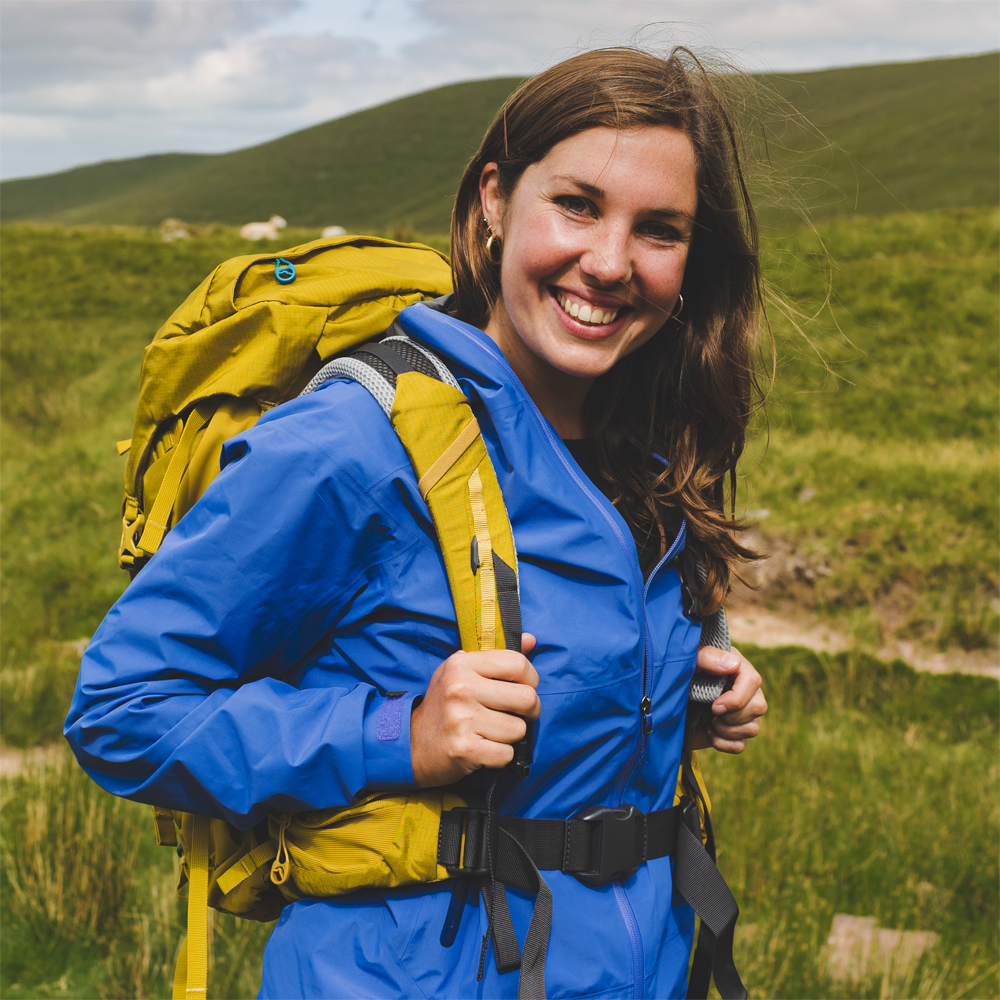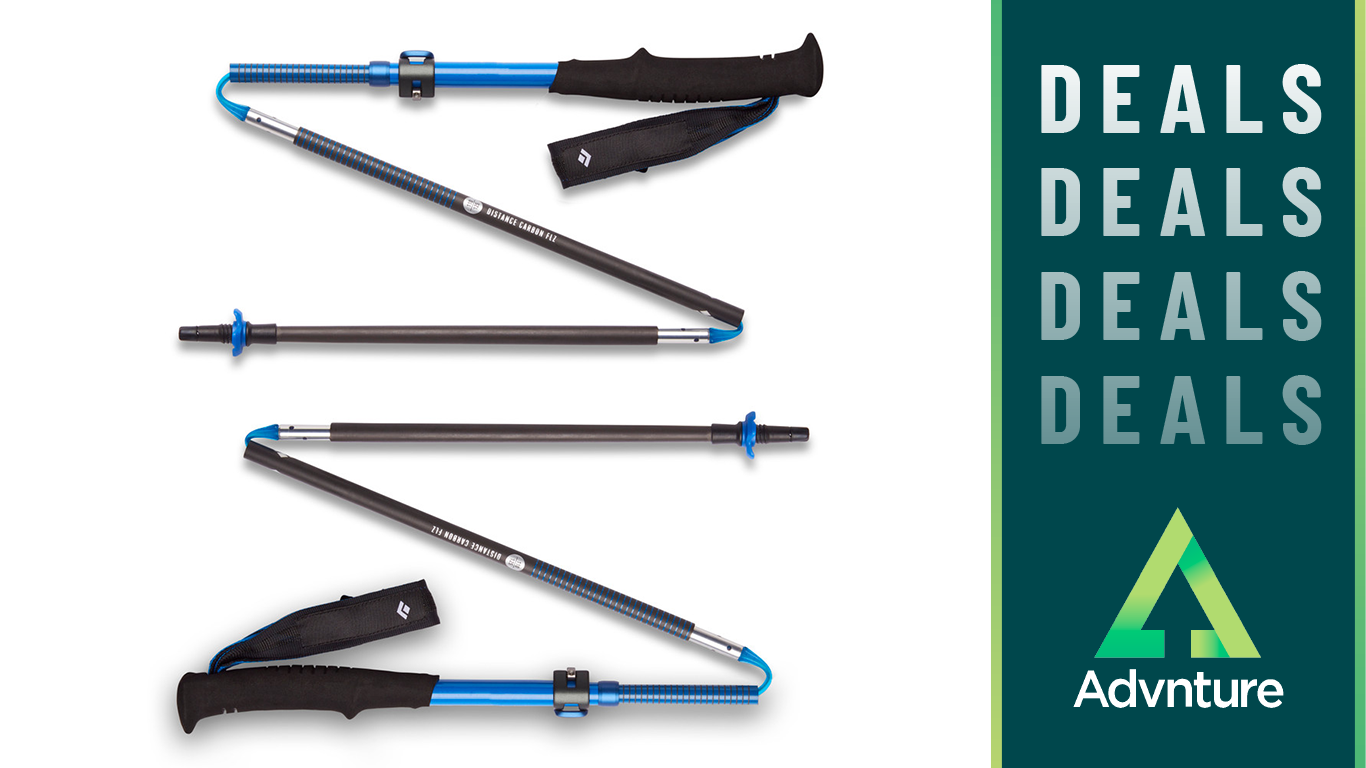The best women’s hiking boots: for epic backcountry adventures
Our roundup of the best women's hiking boots features footwear offering protection, warmth and stability for the rugged trails
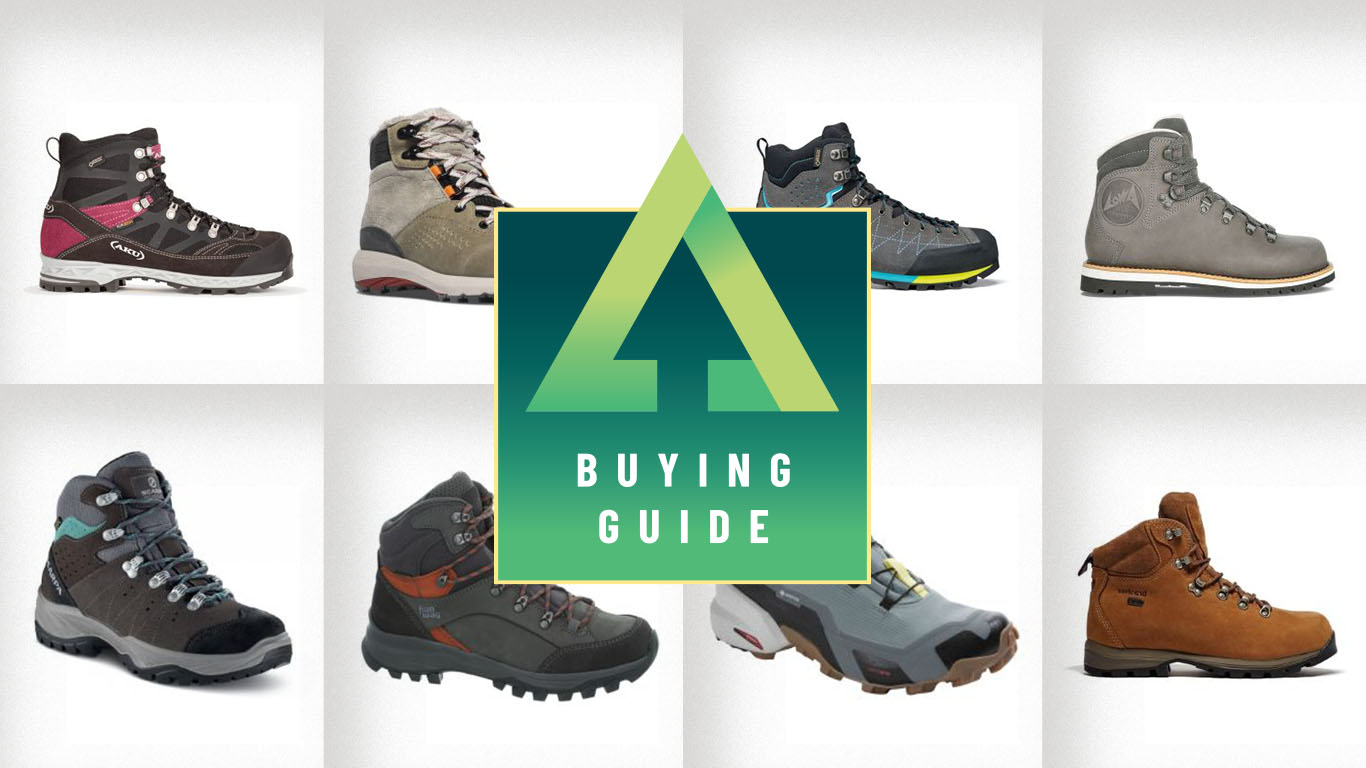
The differences between the best women's hiking boots and those designed for men are mainly to do with the shape and construction of the boot. Generally speaking, women's feet are wider in the forefoot and toe, narrower around the heel and are more flexible than male feet. This calls for a stiffer midsole and a markedly different shape.
Our roundup of the best women's hiking boots contains pairs for technical terrain, breathable boots for summer hikes, our selection of the most comfortable options, the best budget option and what we think is the best all-leather boot. So, make sure you've chosen the right pair for you when it comes to lacing up for your adventures this year.
For tackling technical terrain, the Scarpa Zodiac Plus are our pick for the best women's hiking boots. During our tests, the waterproof membrane and 'sticky' Vibram sole meant we felt comfortable even in wet and slippery conditions. If comfort is your main concern, the Danner Inquire Mid Insulated are highly recommended. They're well insulated, and we found them particularly snug on cold weather treks.
The best women's hiking boots
You can trust Advnture
Women's hiking boots for technical terrain
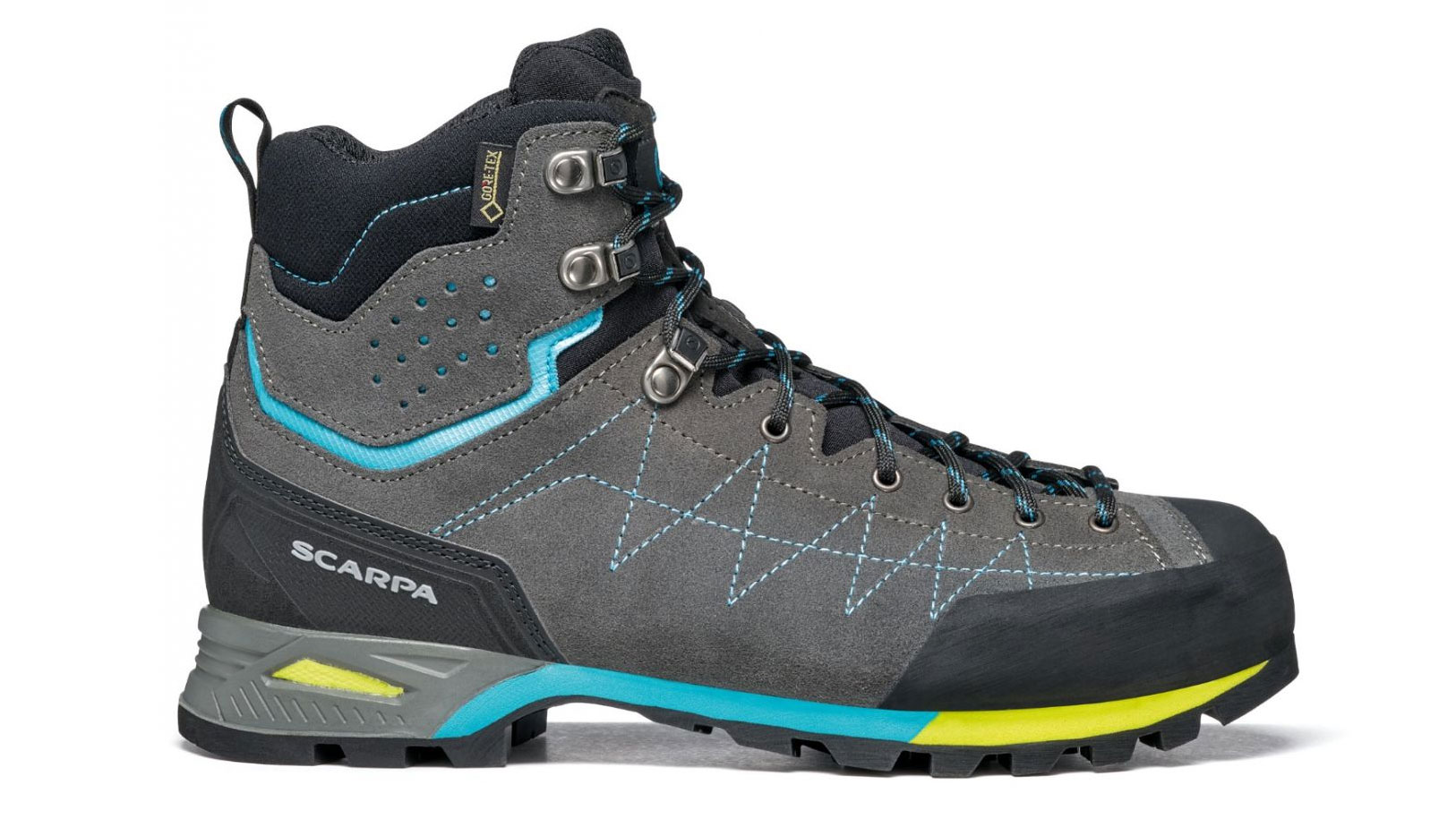
Specifications
Reasons to buy
Reasons to avoid
The Scarpa Zodiac Plus is that holy grail: a tall women's hiking boot that doesn’t come with the weight or rigidity of a more mountain-focused design. Lightweight and athletic enough to go trekking and backpacking – but waterproof and sturdy enough to inspire confidence on the mountains, scrambling or even on Via Ferrata routes – this is a brilliant boot to invest in if you want a great hiking boot to progress higher into the hills with.
Scarpa’s ‘sock fit’ technology makes the boot fit snugly to your foot with no bunching around the tongue, and the supple suede outer is tough but still flexible, and moulds nicely to your foot. Our tried-and-trusted combo of Gore-Tex’s breathable and waterproof membrane coupled with reliably sticky Vibram soles means you can hike confidently on varied trails and hold your own on wet, slippery surfaces. If you’re getting serious about your walking adventures, these are worth the spend.
Read our full Scarpa Zodiac Plus review
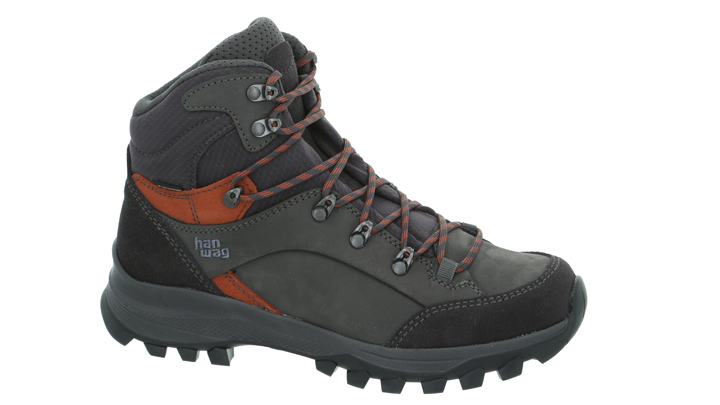
Specifications
Reasons to buy
Reasons to avoid
These rather luxurious nubuck leather beauties look and feel like great quality – if you want to invest in women's hiking boots that will last you for years of adventures to come, the Banks could well be worth their steeper price tag.
Hanwag has been making premium hiking boots for 100 years (and the Banks model for 15) and it shows in thoughtful design and solid construction. The company recommends its popular Banks boot for flatter walks and hut-to-hut hikes, and we would have to agree – on test we found them waterproof enough to wear in the mercurial British winter, but breathable enough to keep you cool on longer trail days.
Vibram soles with well-placed lugs make these women's hiking boots reliable even on wet, uneven trails, and thick, mesh-lined ankle padding keeps your foot in place as you stride along. We like that three widths are available – the narrow version of the Banks is ideal if you find most models too roomy.
Read our full Hanwag Banks Lady review
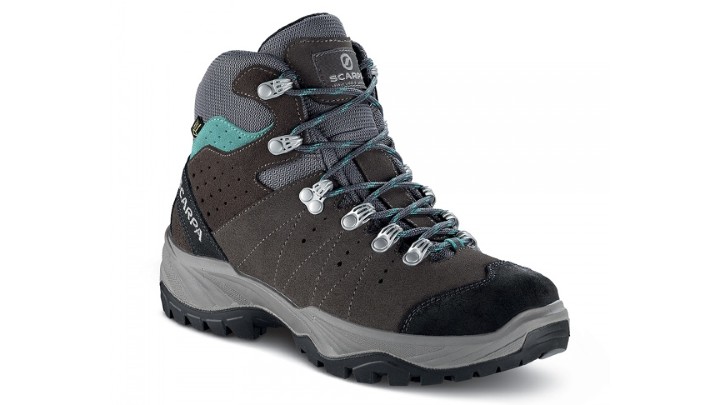
Specifications
Reasons to buy
Reasons to avoid
Scarpa’s latest women's walking boot, the Mistral, is a flexible fabric model designed with hillwalkers in mind. A suede and fabric upper material makes the Mistral comfortable from the get-go, and these tough boots pack a technical punch, with a built-in Gore-Tex membrane keeping feet totally dry.
Vibram Energy II soles offer great stability and grip, even on wet rock, making these boots versatile enough to take higher onto mountain paths. Cushioning soles give a pleasantly springy feeling to each step you take in the Mistrals, even if you’re covering long distances.
We did find the neck of the boots on the wide side – you’ll need to lace them up tightly for good ankle support and to avoid any rain seeping in. If you find most hill-happy hiking boots are too stiff for you or if you want to invest in just one great pair of walking boots that can deal with a range of trails as well as walking holidays, these are a great investment.
Read our full Scarpa Mistral review
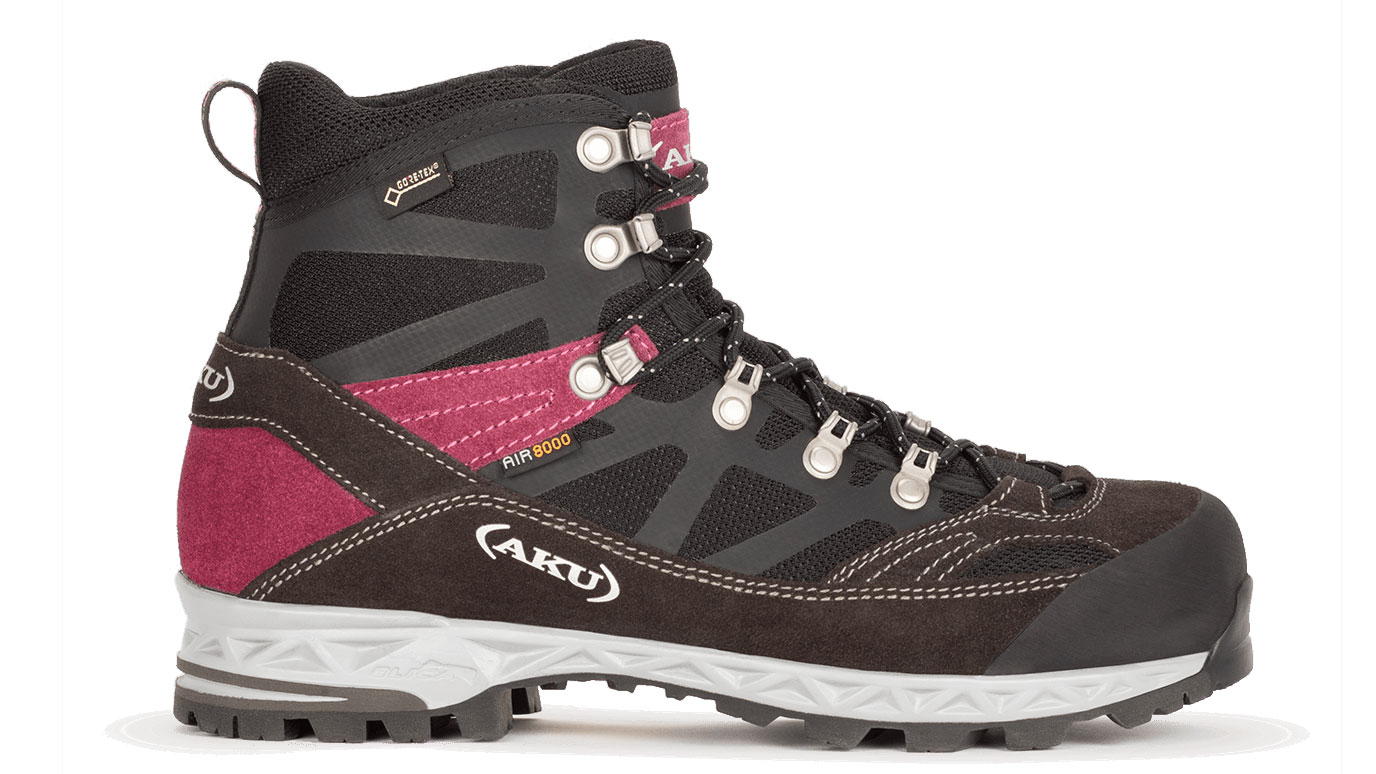
Specifications
Reasons to buy
Reasons to avoid
Aku’s Trekker Pro stands out for its wonderfully stability underfoot – if you have weaker ankles or tend to lose balance when the trail starts to tire you out, these boots will give you a supported feeling even when you’re testing yourself and covering big distances. That said, there isn’t tons of padding around the ankle – if you’re used to more cushioning, you may want to pair these boots with thicker socks. That same lack of warm padding means these boots are best worn from spring to autumn.
At almost $200 / £200 you’d expect great build quality, so it’s no surprise that deep-lugged Vibram soles and Gore-tex waterproofing are both built in to keep your feet dry (so dry that we successfully forded a river in the Trekker Pros) and squarely on the ground. We particularly like the wide rubber toe rand and the thicker shock-absorbing heel, ideal for taking the boots further into rough, rocky terrain.
Read our full Aku Trekker Pro review
Women's hiking boots for summer
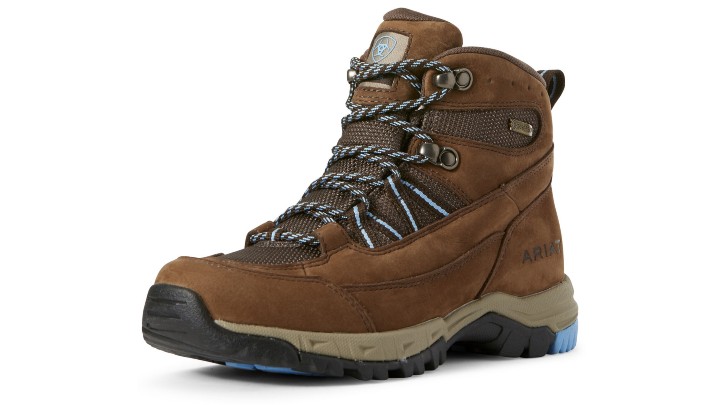
Specifications
Reasons to buy
Reasons to avoid
There’s a lot to like about this high-performing women's walking boot. The Skyline Summit has all the benefits of warm, naturally waterproof full-grain leather without requiring any breaking in, and is reassuringly comfortable straight out of the box. A Gore-Tex membrane keeps the leather and nylon panels dry even in heavy rain, but still offers enough breathability to make these boots work from autumn right through until late spring – and we found the Skyline Summits warm enough to keep feet cosy even on frosty winter walks.
A great lacing system and high, narrow neck makes the boots feel very stable and snug underfoot – ideal if you find most hiking boots don’t support your ankles properly. Supportive, cushiony insoles add to that feeling of stability, and stop the boots feeling too heavy when you’re covering long distances. They may be one of the pricier boots in our round-up, but you get what you pay for – if you’re investing in your first proper pair of women's hiking boots, these are an easy choice.
Read our full Ariat Skyline Summit GTX review

Specifications
Reasons to buy
Reasons to avoid
A hybrid hiking boot-running shoe, the Cross Hike offers solid grip in all conditions. Aggressive multidirectional Y-shaped lugs in the grippy sole provide excellent traction, and in the heel those lugs are positioned for braking. The downside of these fangs is that they do accumulate mud.
The Cross Hike boot is built with a seamless, closed-mesh, debris-blocking upper with a Gore-Tex membrane inside. Protective minimalist rands run right around the boot, and both inner and outer ankles have reinforced padding with a deep Achilles cutout in between that’s covered with soft and stretchy cloth to keep out dirt and leaves. The high-rebound midsole of this women's hiking boot looks massive, but doesn’t feel that way on the trail. A slider tightens and loosens the laces, which makes it easy to adjust these boots on the fly for more support when required.
The Cross Hike boots might not offer enough support for you to carry a multiday pack if you suffer from weak ankles, though, and the laces can loosen up during hikes. Salomon footwear often runs narrow, but these boots don’t – they comfortably fit wider feet (as well as the narrow feet of another tester).
Read our full Salomon Cross Hike Mid GTX review
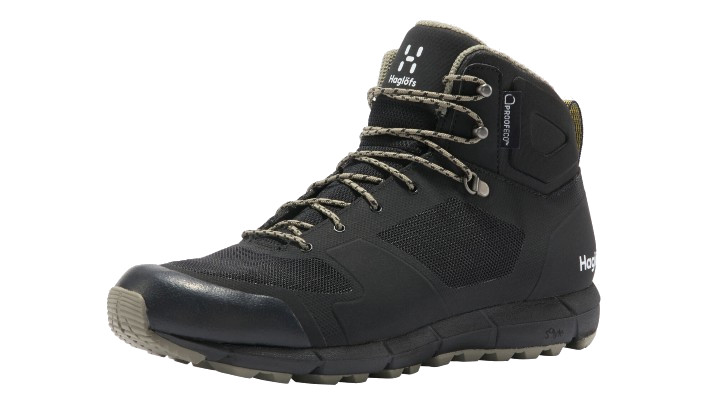
Specifications
Reasons to buy
Reasons to avoid
You’ll barely feel these fantastically lightweight women's hiking boots on your feet – at just 310g per boot, the LIMs (which fittingly stands for Less is More) are a world away from clunky traditional walking boots. Despite that barely-there feel, these boots are still waterproof enough to withstand a sudden rain shower, but where they really excel is on warm, dry, summer days, especially if you’re planning on covering long distances – the soles are grippy enough to be reliable on established hill and country routes, and thick enough so that you won’t feel the ground under your feet.
That said, these lighter numbers wouldn’t offer you enough support on scrambles or off the beaten path. The light weight and flexibility of the LIMs make them easy to pack for international travels or backpacking. If you already own a workhorse leather boot and want something freeing and light for the summer, these are a great pick. We’re not sure about the salmon pink colourway, but the tan and black versions are very smart-looking.
Read our full Haglofs LIM review
Women's hiking boots for comfort
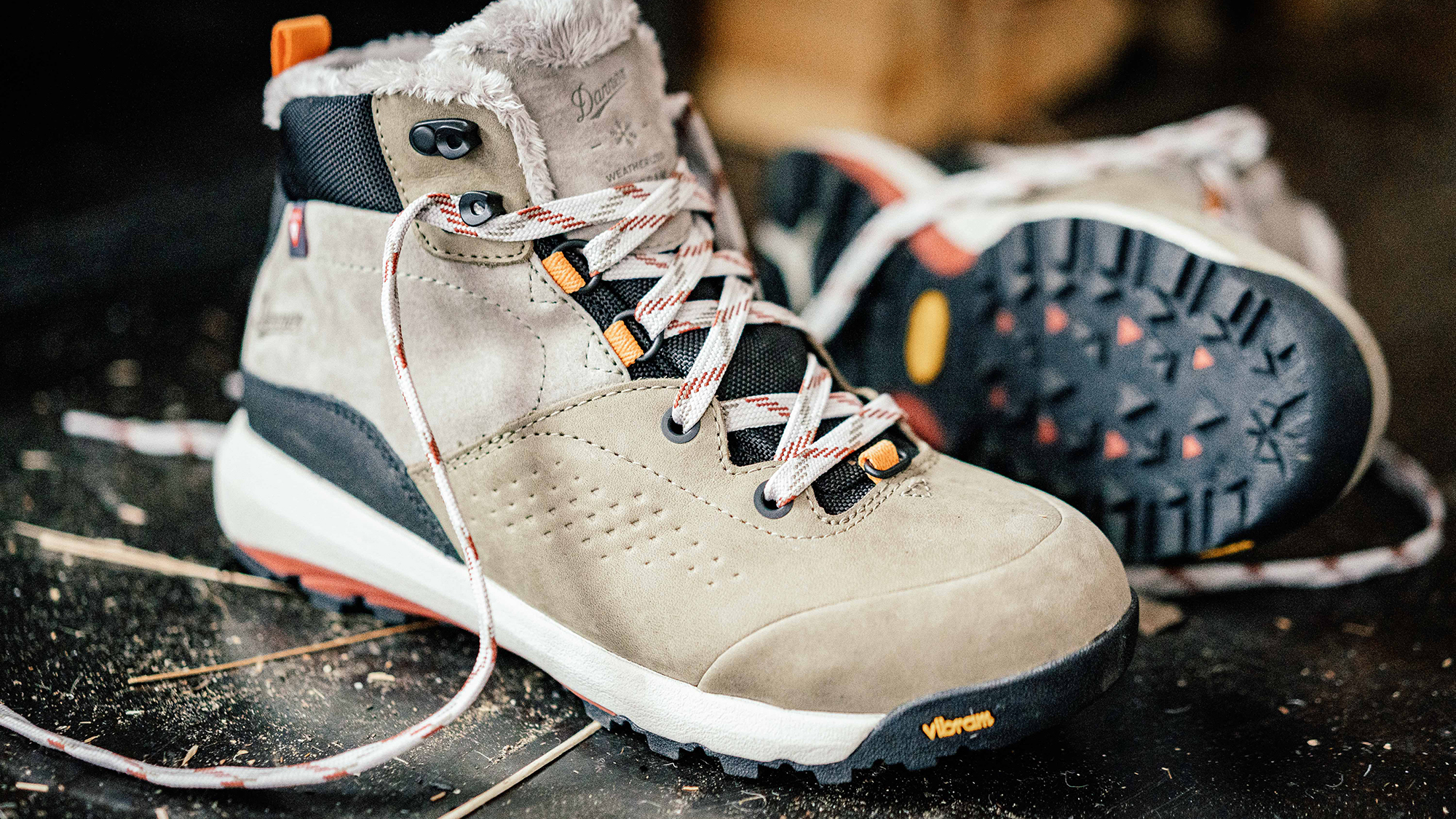
Specifications
Reasons to buy
Reasons to avoid
Many cold-weather women's hiking boots have insulation, but lack the support required for bigger adventures. Not so the Danner’s Inquire Mid, which has torsional rigidity, a supportive and shock-absorbing midsole, and a level of technical construction that makes it good for long treks.
The suede upper is supportive but not overbuilt, so there is no lengthy break-in required. Zonal lacing lets you control whether to tighten down in the forefoot or just the ankle, and the gusseted tongue keeps trail grit and snow out. Danner’s proprietary waterproof and breathable lining keeps feet dry, while warmth is provided by a fuzzy faux fur collar, plus 200g of Primaloft Gold insulation (as used by astronauts) in the toe.
This women's hiking boot rides on a thick and cushioning midsole, with a plastic shank for torsional stability and to protect feet from rock bruising. The shank is visible through the dual-density sole, which offers excellent grip in all conditions, as well as traction for deeper mud and snow – the lugs optimized for uphill, downhill, and wet conditions. A D-ring at the toe lets you attach a gaiter. The Inquire Mid is on the low side of mid-cut, which is ideal for cold-weather outings on bare ground, and snowshoeing in low to moderate fluff.
Read our full Danner Inquire Mid Insulated review
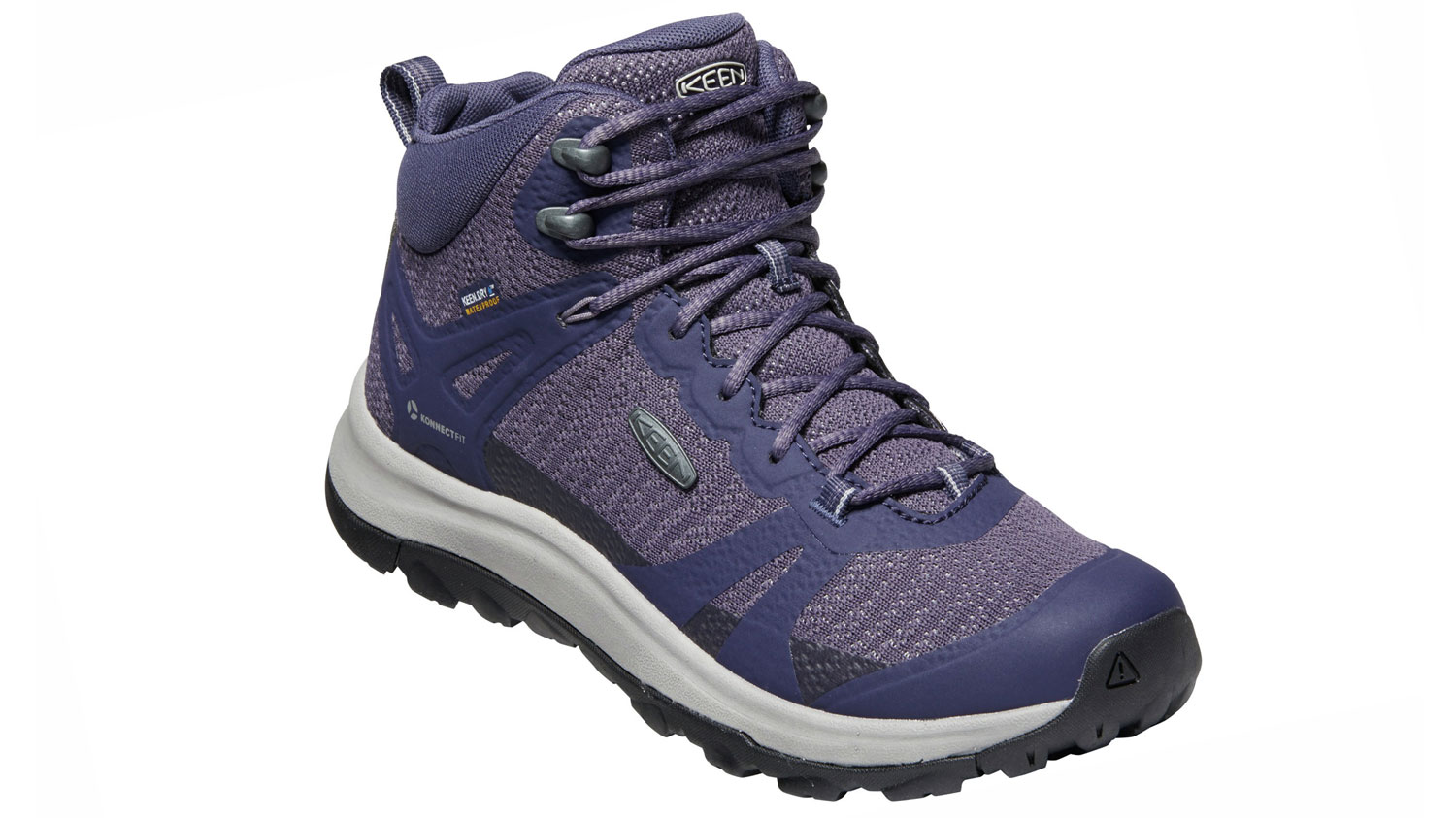
Specifications
Reasons to buy
Reasons to avoid
The deliciously comfortable Keen Terradora IIs feel as light and forgiving to wear as your favourite pair of trainers – if comfort is top of your wish list, these lightweight women's hiking boots are ideal. The upper fabric may be soft and tactile, but it’s still waterproof to deal with sudden showers, and Keen’s own-brand All Terrain soles offer decent grip on less challenging terrain (but won’t stand up to scrambling over wet, slippy rock).
The Terradora IIs are highly breathable and keep feet comfortably cool in hot weather, but don’t offer much warmth in cooler months – they’re built with summer hikes in mind. Anti-odour insoles are definitely effective at reducing, if not eliminating, sweaty smells after long days of walking, making these boots a good choice for multi-day backpacking routes. Multiple cheerful colorways also make the attractive Terradora II stands out in a sea of boring brown and gray women's hiking boots.
Read our full Keen Terradora II review
Budget women's hiking boots
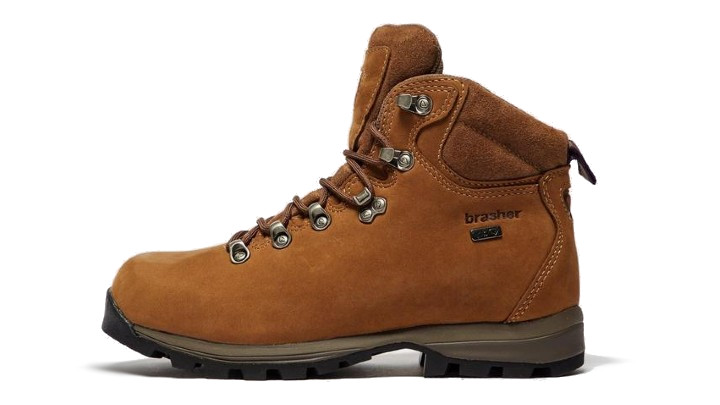
Specifications
Reasons to buy
Reasons to avoid
The sheer amount of choice on offer when you’re shopping for women’s hiking boots can be overwhelming, but you can’t go wrong with Brasher’s classic favorite, the Country Walker. Unsurprisingly perfect for country walks (clue in the name), this suede boot ticks all our boxes for autumn and winter rambles: it’s warm, waterproof and sticks to wet trails like glue thanks to Vibram soles. We really rate the Country Walker’s slim-fitting high ankle, which laces up to feel reassuringly solid and sturdy.
These are the heaviest boots we tested, and might start to weigh you down after ten miles or so – but for laid-back countryside strolls on crisp autumn days, you won’t find a better companion, and you definitely won’t get cold toes thanks to plentiful insulation. The Country Walkers also look rather fetching, in a warm brown suede, but be warned – you’ll need to clean them regularly if you venture onto muddy trails.
Read our full Brasher Country Walker review
All-leather women's hiking boot
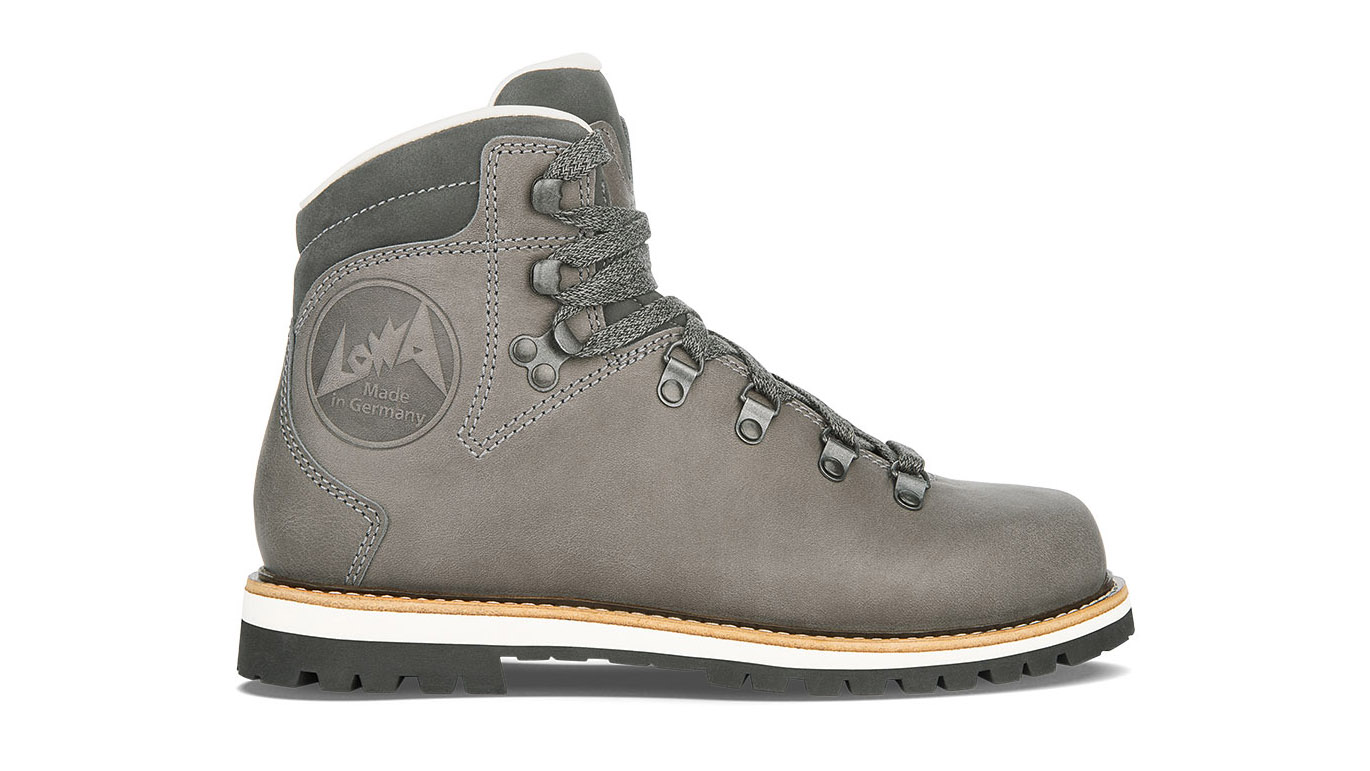
Specifications
Reasons to buy
Reasons to avoid
Crafted with rugged full-grain leather on the outside and a buttery glove-leather lining, this heritage women's hiking boot is beautiful enough to wear around town, and technical enough for some mountain wanders. It’s also surprisingly light for a full leather boot. The Wendelstein is well suited to striding up any alpine meadow to a mountain hut, as well as more casual outings on recreational paths, and points of interest.
However, in our tests we found that it doesn’t have the squishy midsole characteristic of many modern hiking boots. The midsole of this women's hiking boot is a medium-thin layer of EVA for shock absorption – the same stuff used to give sneakers their springy feel – but the Wendelstein uses a thin layer, not the thick pad found in most running shoes. It is enough for around-town explorations, a hike to a viewpoint, and countryside rambles. The ankle support is excellent, but on long treks the low level of cushioning will start to tell.
The Vibram Marmolada sole offers good grip on easy to moderate terrain, and the sole is replaceable when it wears out. Not only does that lower the environmental impact of these boots (because they won’t be landfill-bound once the sole wears out) it also means you get to keep it longer – a good thing, as it's not cheap. Metal D-ring lace loops make it easy to pull the laces tight to your foot. The boot comes with an extra set of laces, so you can add a dash of color when you’re in the mood.
Read our full Lowa Wendelstein II W's review
Hiking boot | Price | Weight | Style | Best use |
Scarpa Zodiac Plus | $270 (US) / £200 (UK) | 545g / 1lb 3oz | Waterproof, mid-height hiking boots | 4 season use: hiking, backpacking, trekking, scrambling, technical trails. However, no crampon compatibility for winter mountaineering |
Hanwag Banks Lady | $150 (US) / £200 (UK) | 525g / 1lb 2.5oz | Waterproof, mid-height hiking boots | 4 season use: hiking, backpacking, hut-to-hut trekking. However, no crampon compatibility for winter mountaineering |
Scarpa Mistral | $180 (US) / £150 (UK) | 540g / 1lb 3oz | Waterproof, mid-height hiking boots | 3 season use: hiking, backpacking, scrambling |
Aku Trekker Pro | $200 (US) / £200 (UK) | 525g / 1lb 2.5oz | Waterproof, mid-height hiking boots | 3 season use: hiking, backpacking, technical trails, scrambling |
Ariat Skyline Summit | $160 (US) / £170 (UK) | 538g / 1lb 3oz | Waterproof, mid-height hiking boots | 4 season use: hiking, backpacking, trekking. However, no crampon compatibility for winter mountaineering |
Salomon Cross Hike Mid GTX | $170 (US) / £165 (UK) | 340g/12oz | Waterproof, mid-height hiking boots | 3 season use: fastpacking, speed hiking, scrambling |
Haglofs LIM | €150 (EU) / £130 (UK) | 310g / 11oz | Waterproof, mid-height hiking boots | 3 season use: hiking, backpacking, hut-to-hut trekking in summer |
Danner Inquire Mid Insulated | $180 (US) / £138 (UK) | 411g / 29oz | Waterproof, mid-height hiking boot | 4 season use: hiking, backpacking, winter walking. However, no crampon compatibility for winter mountaineering |
Keen Terradora II | $150 (US) / £110 (UK) | 413g / 14.5oz | Waterproof, mid-height hiking boots | 3 season use: fastpacking, speed hiking |
Brasher Country Walker | £100 (UK) | 650g / 1lb 7oz | Waterproof, mid-height walking boots | 3 season use: country walking and light hiking |
Lowa Wendelstein II | $325 (US) / £245 (UK) | 525g /18.5oz | Water-resistant, mid-height stylish boots | 3 season use: light hiking, countryside ambles |
How we test women's hiking boots
Our female reviewers test women’s specific hiking boots across varied terrain, including technical trails, in a range of conditions, with and without backpacks. Features (including sizing, weight, foot and ankle support, toe and heel protection, cushioning, waterproofing, breathability, materials used, grip and general comfort) are tested against claims made by the brand, and we assess factors such as durability, environmental impact and value for money.
How to choose women's hiking boots
There’s a huge selection of women’s walking boots on the market, and the sheer range can be bewildering. First you need to identify if walking boots are exactly what you require.
If you're intending to move fast through the mountains, without a heavy pack, you might want to opt for a pair of the best women's trail running shoes. The question of trail walking shoes vs hiking boots is not an easy one to answer and sometimes it just comes down to personal preference.
Maybe you're heading out in challenging winter conditions? If so, you will you need to choose from the best women's winter boots to keep you warm, keep you dry and handle the terrain you'll encounter during your sub-zero adventures.
However, if you're taking that heavy pack onto the trails in a conventional manner, the following considerations should help you make the best selection for the adventures you intend to go on.
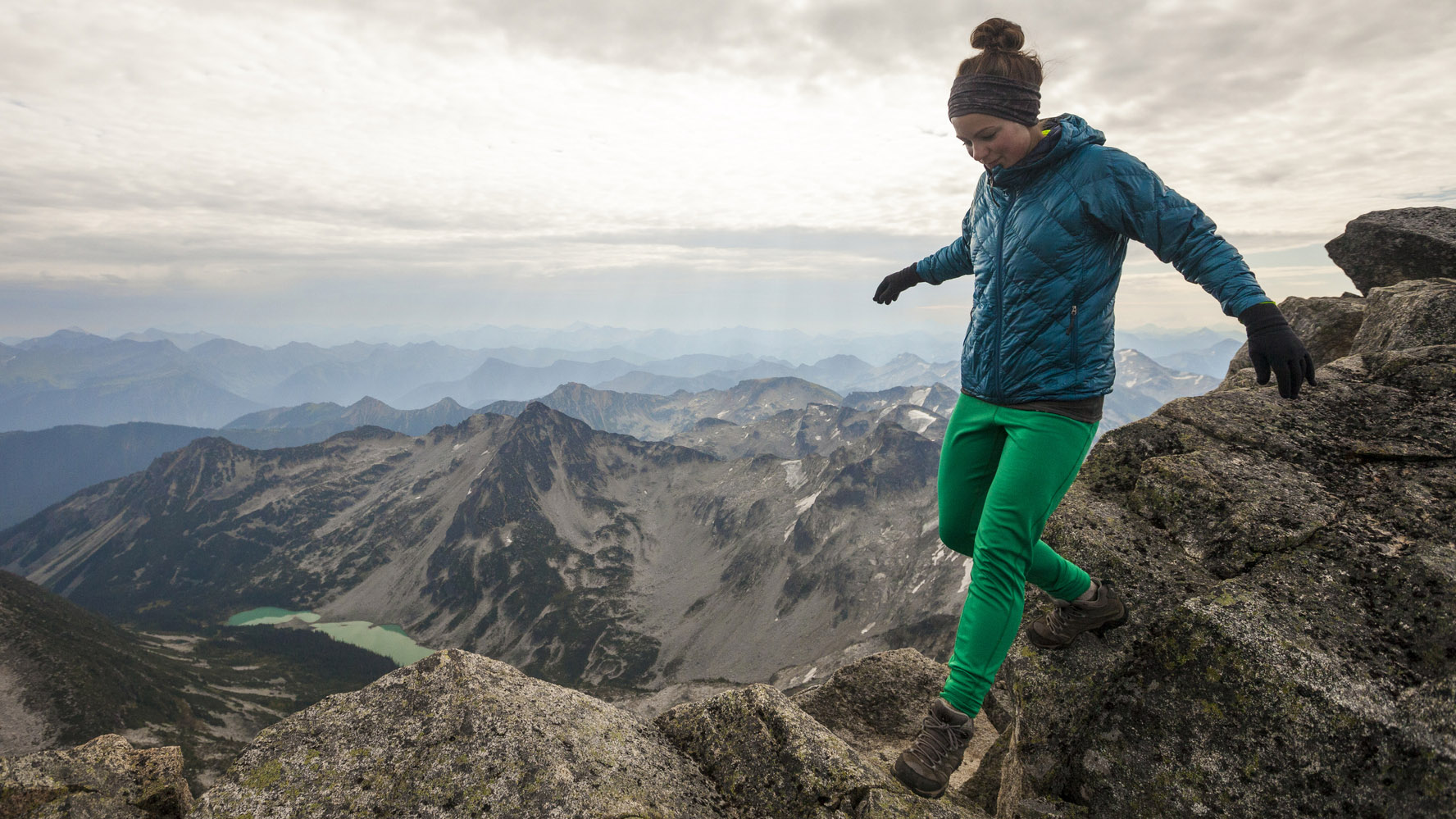
Leather or fabric?
The first decision to make when choosing from our list of the best women’s hiking boots is whether you want to plump for leather or fabric boots. Leather is warm, long-lasting and naturally waterproof, while fabric boots tend to be lighter and more breathable. Insulated leather is better for winter use, and breathable fabric performs best in warmer weather – so if you can afford to, it’s a good idea to own a pair of each, so that you can tackle hikes in all seasons.
Stiff leather boots have traditionally required some breaking in, although these days many leather boots feel comfortable right out of the box. Lightweight fabric boots are definitely more comfortable to wear, though, and can feel as light and comfy as your favourite trainers. Leather boots tend to require more care to avoid them cracking or splitting, but if you look after them, they should last you for years.
Waterproofing
Staying dry while hiking is high on everyone's priority list. If you’re going adventuring in all kinds of weather, you’re going to need boots that can reliably withstand the elements. Heading out in hiking boots that are branded as fully waterproof (rather than just ‘water-resistant’) will keep you drier for longer.
Waterproof boots use a membrane that lets sweat out, so your feet can breathe, but blocks water getting in. Sometimes, it's the conditions are so grim, keeping your feet dry is impossible, but we've written this guide to how to keep your feet dry while hiking to help you avoid the worst of it!
Some boots use branded or own-brand waterproofing technology – Gore-Tex is one of the best known (and best performing). If your boots start to lose their waterproofness, you can re-waterproof them with a product such as Nikwax.
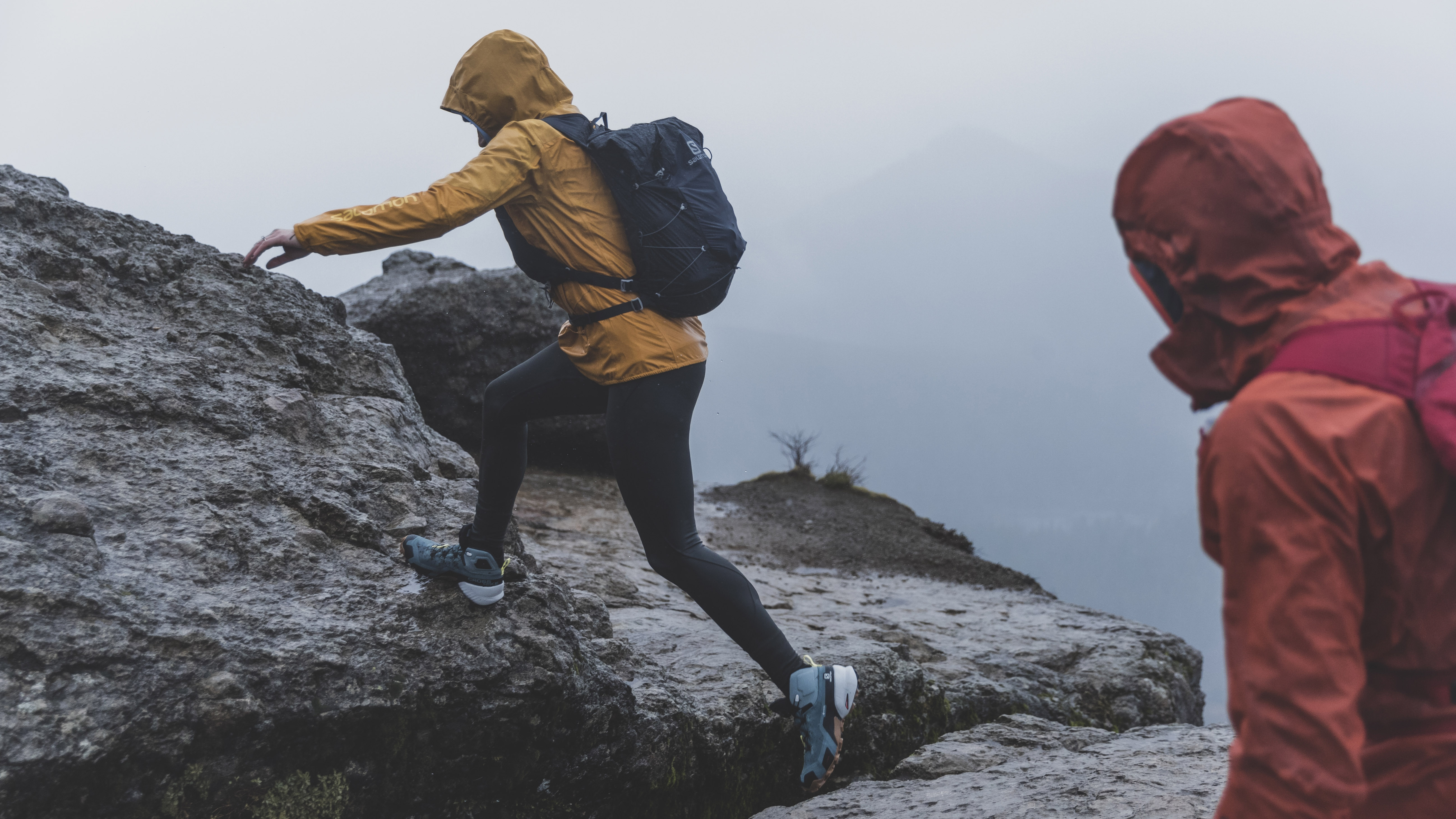
Breathability
The best women's hiking boots are designed to cover many miles, so they need to be as breathable as possible to stop your feet overheating. Think of them like you'd think of the best base layers: you want them to keep your feet warm, but only to a certain point. Look for a pair with a built-in breathable membrane, and if you want to wear your boots on backpacking adventures in warm climates or for summer trekking trips, pick a lightweight fabric pair.
Soles
The soles of your new hiking boots are one of the hardest-working components, so pick sturdy ones that offer good grip. Good soles should be tough and grippy, even on slippy surfaces, but still lightweight and bouncy enough to feel comfortable when you’re walking over long distances. Many bootmakers use branded soles – if in doubt, hardwearing Vibram soles are always a good choice. Look for deep ‘lugs’ (the indentations on the bottom of your boot’s soles) – these indicate that the boots give good grip.
Winter boots tend to have rigid soles, especially if they are graded to hold crampons. If this is the case, you should not be able to bend them one iota, even with all your strength. Soles that are designed more with summer in mind are also likely to be more flexible, which tends to make them more comfortable.
Regardless of which season they were designed for, it is essential to break in hiking boots when they're new, before hitting the trails. We all know that stiff, new shoe feeling — well it's the same with hiking boots. If you head for the hills and they haven't been broken in, your poor feet will pay for it.
Fit
It’s important to make sure your hiking boots fit perfectly – it's the best way to prevent blisters. There’s nothing worse than getting a painful blister halfway through a trek you’ve been looking forward to tackling.
Try on boots while wearing your best hiking socks and check that they feel snug but without any rubbing or tight points anywhere, especially around the toes and heel. It's also worth remembering the hiking socks you wear in winter should be even thicker — don't forget them when trying out a pair of boots intended for winter use.
There should be plenty of room for your toes to flex, but when laced up, your feet shouldn’t slip around within the boot. Long descents are an absolute killer if your toes keep on bashing into the front of your boots with every step. If you have wide feet or suffer from bunions, it’s a good idea to look for models that are designed specifically for your feet.
What to do with your old hiking boots
If your old boots aren't in good enough condition to donate, and they can't be resoled (see should I resole my hiking boots for details), you still have a few options. Many household waste recycling centers will accept shoes and boots, and will send them to specialist facilities for processing. If you have a lot of footwear, or you can organize a drive with friends or colleagues, you can order a shoes and footwear zero waste box from Terracycle, which will include a shipping label.
In the UK, Cotswold Outdoor accepts paired shoes and boots (except for ski boots) in its in-store recycling bins.
Advnture Newsletter
All the latest inspiration, tips and guides to help you plan your next Advnture!
An award-winning travel and outdoors journalist, presenter and blogger, Sian regularly writes for The Independent, Evening Standard, BBC Countryfile, Coast, Outdoor Enthusiast and Sunday Times Travel. Life as a hiking, camping, wild-swimming adventure-writer has taken her around the world, exploring Bolivian jungles, kayaking in Greenland, diving with turtles in Australia, climbing mountains in Africa and, in Thailand, learning the hard way that peeing on a jellyfish sting doesn’t help. Her blog, thegirloutdoors.co.uk, champions accessible adventures.
